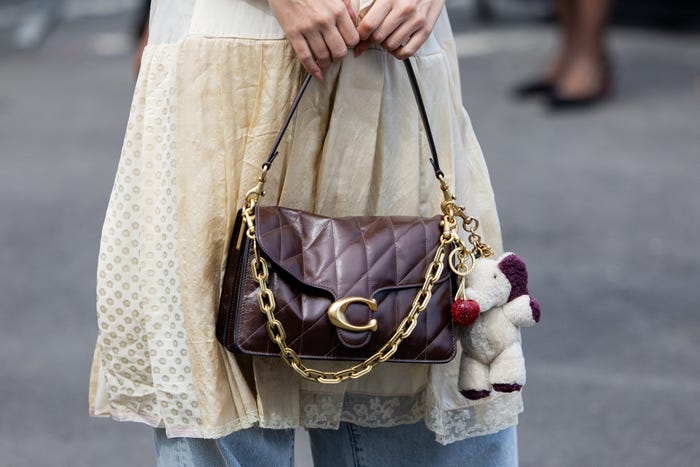BREAKING: Coach’s former CEO, Lew Frankfort, has just announced that producing high-quality bags in the United States is not feasible for brands aiming for profitability. In a revealing podcast interview with Yahoo Finance, Frankfort stated that to provide consumers with the “best possible value,” most products should be manufactured outside of the U.S.
This urgent statement comes as many companies are reevaluating their manufacturing strategies in light of ongoing tariff challenges. Frankfort emphasized that while it is technically possible to produce bags profitably in the U.S., the best value will always come from overseas production. “If you want to give consumers the best possible value, you really need to make most of your products outside the United States,” he explained, highlighting the importance of using top-quality materials and skilled craftsmanship.
Despite the current tariff landscape under the Biden administration, Frankfort remains optimistic about the future of global trade. “The tariffs that are in place today… is something that we’re going to live with through this administration, but over time we can only succeed as a global economy,” he stated.
Frankfort’s insights come at a crucial time for Coach, which began as a leather bag shop in New York City in 1941. Today, most of Coach’s products are produced in Asia, specifically in Vietnam, Cambodia, and the Philippines, as confirmed by Tapestry, Coach’s parent company, in their latest earnings call. In the most recent quarter, Coach recorded sales of $1.43 billion, reflecting a 14% increase from the previous year, demonstrating strong consumer demand.
As the luxury goods market evolves, some companies are considering moving production to the U.S. to mitigate tariff impacts. Executives from French luxury giant LVMH indicated in April that there is capacity to boost production of Louis Vuitton products stateside. Similarly, Apple has pledged a significant investment of $600 billion into U.S. manufacturing over the next four years.
However, not all brands agree with this trend. Kering, the parent company of Gucci and YSL, has no intention of relocating production. Kering’s CEO, François-Henri Pinault, stated in February that it “makes no sense” to move production out of Europe, emphasizing the heritage and craftsmanship that define their products.
As the retail landscape continues to shift, Frankfort’s remarks serve as a critical reminder of the complexities brands face when balancing quality, cost, and consumer expectations. The conversation around U.S. manufacturing and global supply chains is more relevant than ever, raising questions about how companies will adapt to ongoing economic challenges.
Stay tuned for updates as this story develops.
